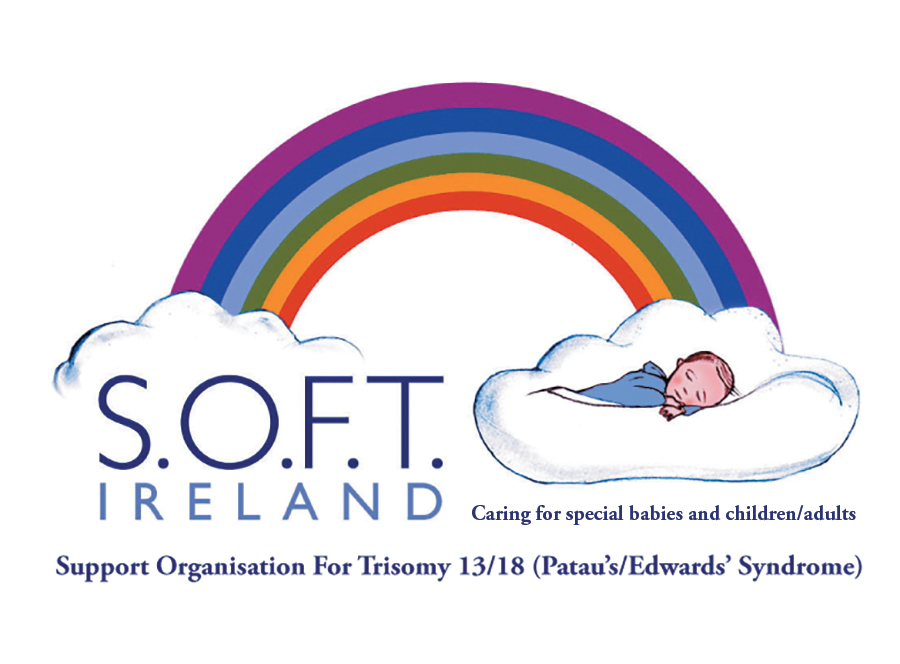Why Our Baby? HOW LONG WILL MY BABY LIVE?
Trisomy 13 and 18 are both associated with a high risk of mortality and, therefore, affect how long a baby is expected to survive. The longer the pregnancy lasts, the greater the chance of your baby being born alive. Sadly, however, the chances of your baby surviving the first year are slim. Nine out of every ten babies born with Patau’s Syndrome or Edwards’ Syndrome do not survive beyond their first year. About three out of every ten babies with these conditions will die within the first month. Half will die before they are two months old. But of the one child in ten who celebrates her first birthday, some will survive into childhood. Occasionally, a child with Trisomy 18 will live into her teens and beyond. Usually, girls live longer than boys. More recent studies have found survival among children with T13 and T18 to be somewhat higher than those previously reported in the literature (Meyer et al, 2016). The frequency and birth prevalence of live-born fatal fetal abnormalities (2006-2018) from all data sources in Ireland indicate Trisomy 13 cases were 119 (1.33) per 10.000 births and Trisomy 18 cases were 173 (1.93) per 10,000 births (Gunne et al 2021).
If your baby has an immediate life-threatening condition, such as a major heart defect, or a defect of the forebrain, your paediatrician/neonatologist may be able to give some indication of how long your baby may live. You will be consulted about life-saving decisions involving corrective surgery or resuscitation.
Parents need accurate information about their baby’s condition. One way parents can learn about their child is to take part in the doctor’s examination of their baby. Parents should not be afraid to ask for straightforward answers in language they can understand.
The uncertainty of knowing how long a baby with this condition will live is painful for parents and family. The parents are grieving because their baby is seriously ill and at the same time are trying to deal with the cruel reality that she may die. If you have other children, explain the situation clearly and simply to them.
Sometimes, family, friends or professionals may encourage parents not to become “too involved” with their baby. This is not necessarily a good decision. Parents who have withdrawn affection and contact from their baby in order to shield themselves from later sorrow may feel more intense grief when she dies. On the other hand, if a baby outlives her predicted lifespan and the parents have prepared themselves for her death, they often find that it is difficult to readjust, to become re-involved with their baby, and to accept the responsibilities of caring for her.
If your baby has no immediate life-threatening condition it is difficult to make an accurate prediction of life expectancy. If your baby does quite well initially you should try to get back to some sort of normality. The thought of the possible death of your baby will hang over you all the time, but try to establish a routine and take each day as it comes.
SURGERY FOR CONGENITAL ABNORMALITIES
A small number of Patau’s and Edwards’ Syndrome babies undergo successful surgery for eye defects, cleft lip/palate, kidney defects and heart defects.
Some problems at birth can be life-threatening, such as a major heart defect, and your baby’s problem would need to be carefully considered with the paediatrician/neonatologist to evaluate the risk of surgery. Other abnormalities may not affect the baby’s health, and surgery would be performed purely for aesthetic reasons. In the latter instance, treatment would be optional.
Each baby with a trisomy is unique and what is right for one baby is not necessarily right for another. Surgery may prolong your baby’s life, or make her more comfortable. On the other hand, treatment or surgery may mean putting your baby through an ordeal, which may or may not prolong her life.
The decision not to use intensive treatment or surgery does not mean that loving care is withdrawn. Your baby can be comfortable and contented during her time in this world, despite her condition. Corrective surgery may not necessarily improve the quality of her life.
It can be helpful to talk to a parent whose baby has undergone surgery, or who decided against intensive treatment or surgery. S.O.F.T. may be able to put you in contact with a parent whose baby’s medical problem resembles your baby’s.
